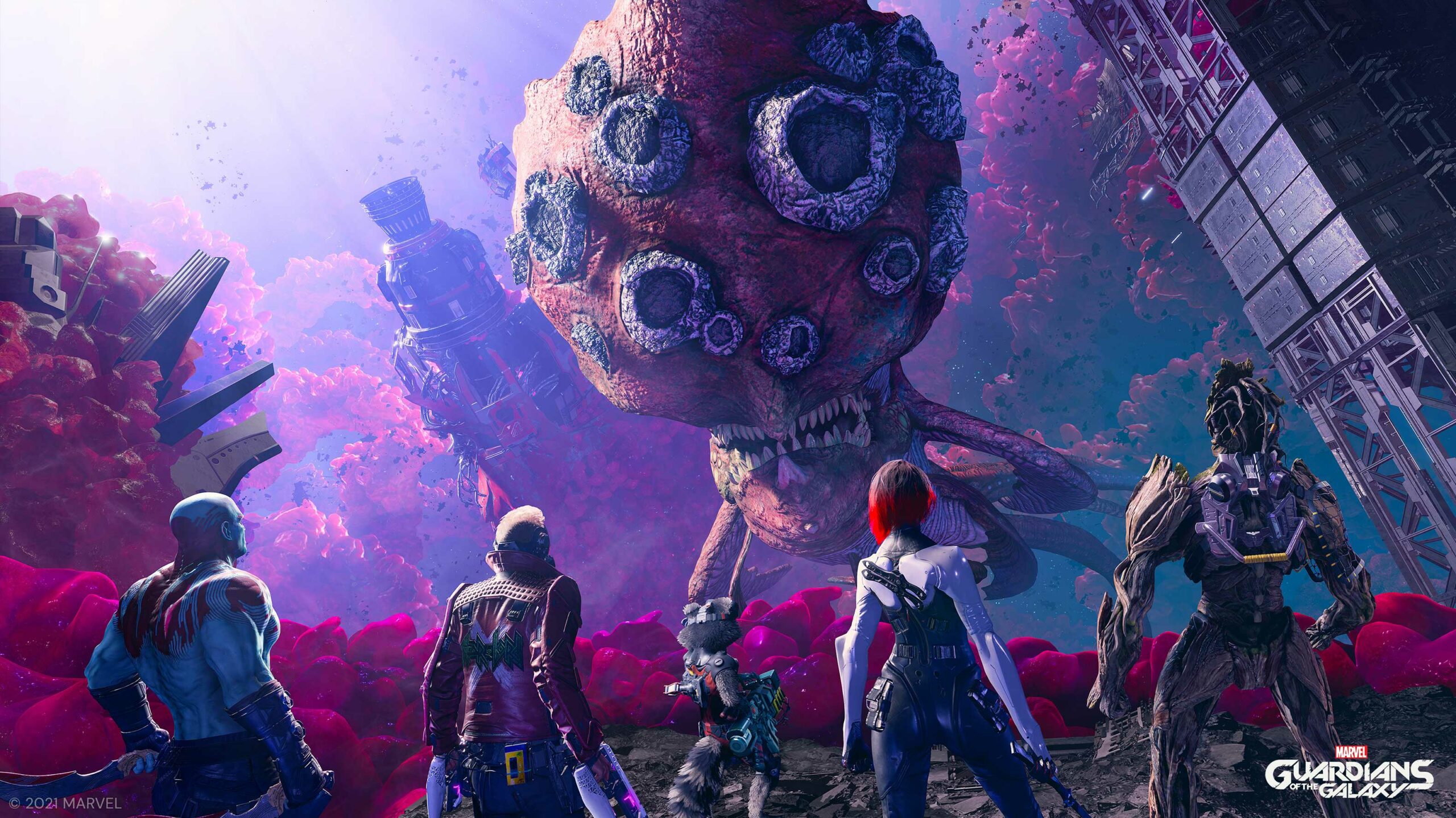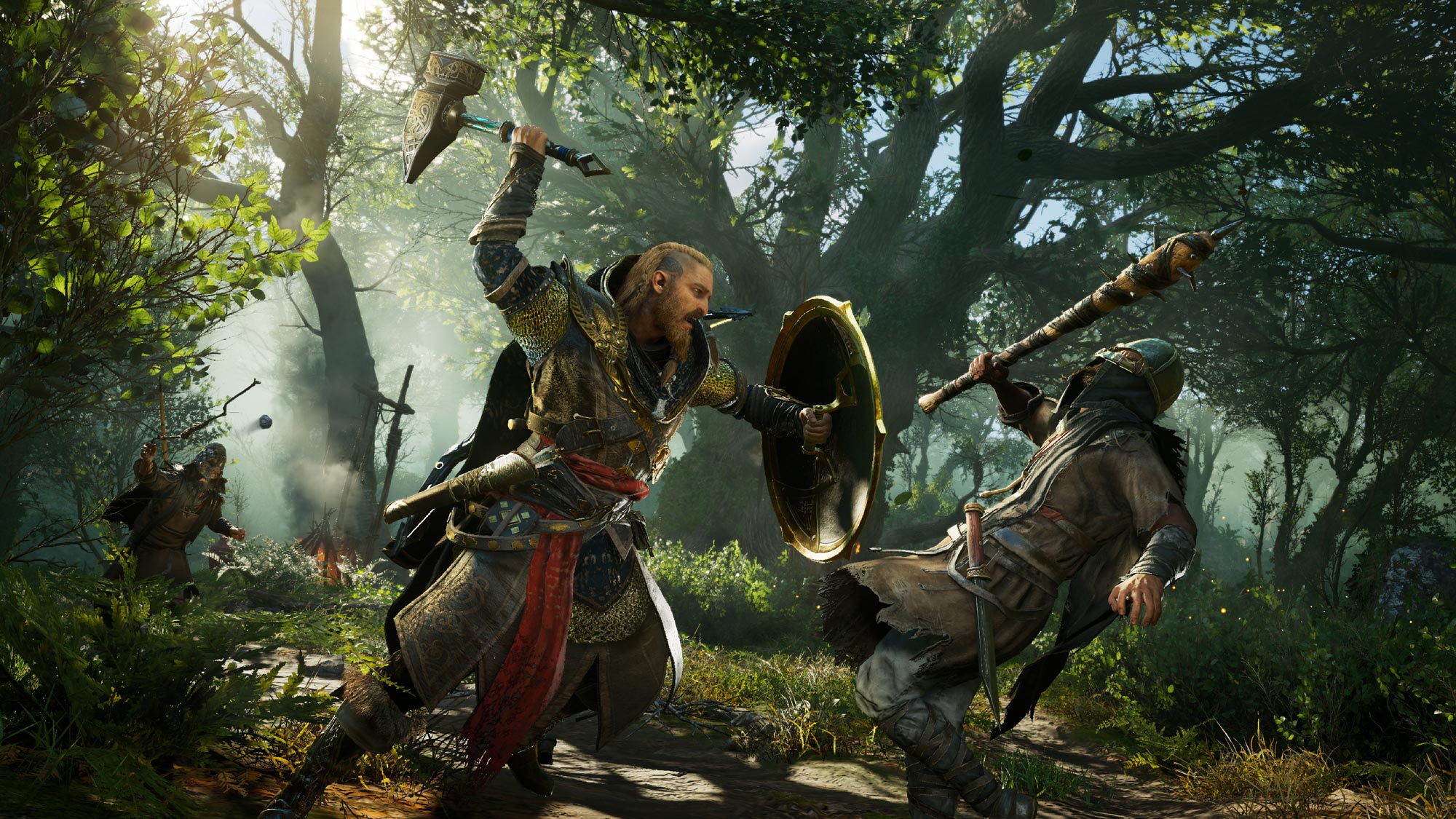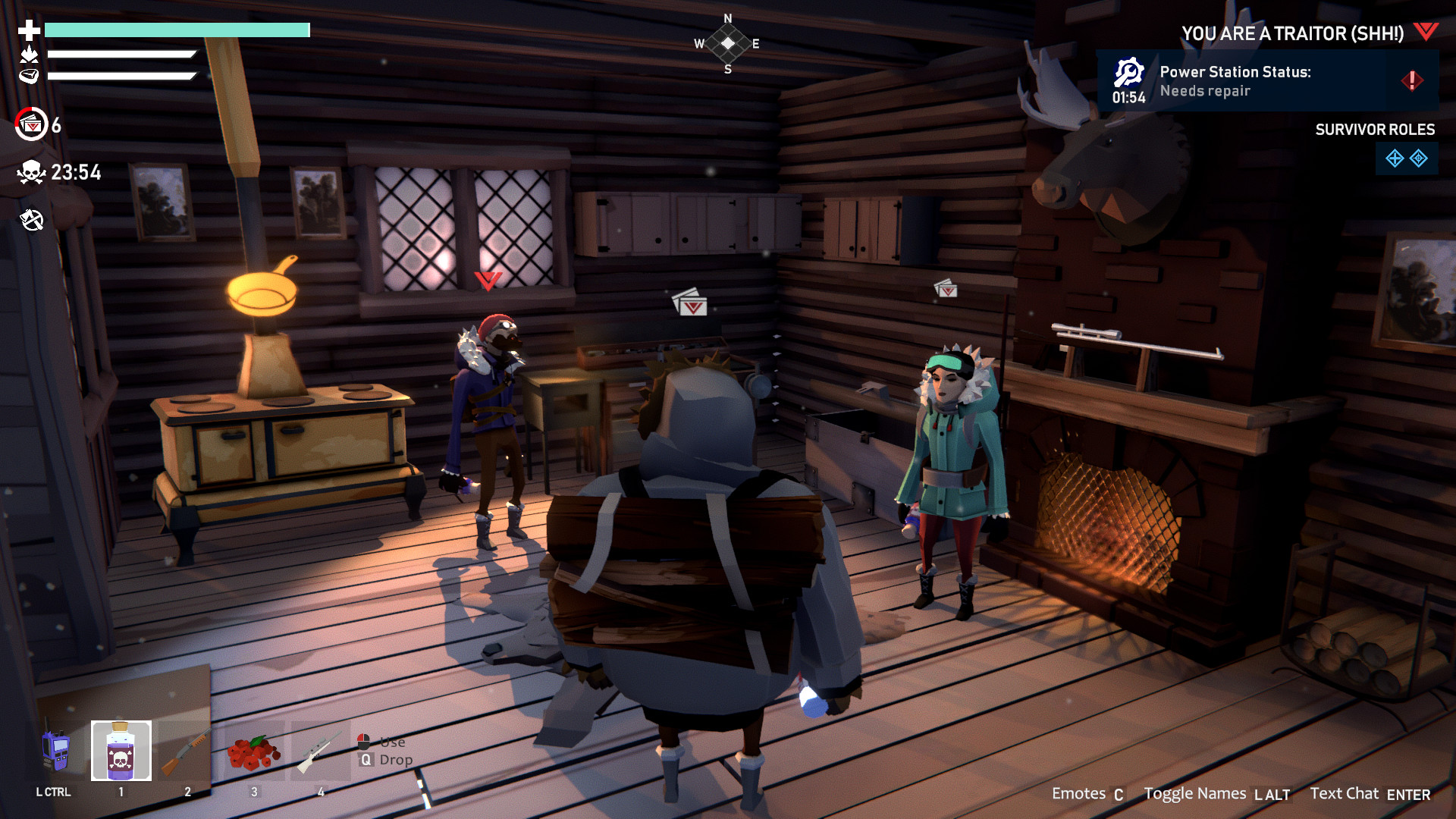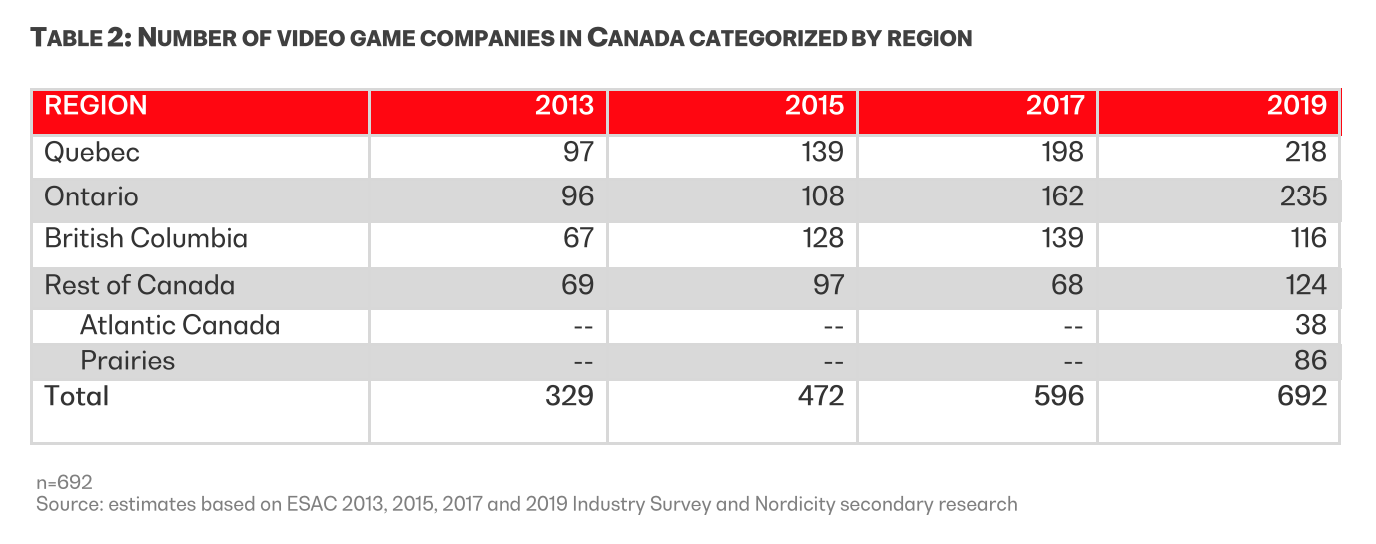
Every year, the Entertainment Software Association (ESA) puts on the Electronics Entertainment Expo (E3), a major video game industry trade event that brings together a slew of publishers in Los Angeles to make various reveals and announcements.
But with the ongoing COVID-19 pandemic, this year’s show shifted to an all-digital event that saw media and fans alike watching showcases remotely and interacting through a spotty online portal. At the same time, the show felt slower to some with respect to big announcements — no doubt a by-product of COVID-prolonged development periods.
With E3 2021 officially in the books, MobileSyrup caught up with Jayson Hilchie, the president and CEO of ESA Canada, which represents Canadian gaming companies by promoting the national games industry and working with the government to address issues that affect them.
“In the early stages of the pandemic, the companies that I talked to were pushing about 70 percent productivity.”
In a wide-ranging discussion, Hilchie spoke about E3, the future of digital events and where the Canadian games industry might be headed in a post-pandemic world.
To start, he says he feels that the fully virtual E3 is a good way to bring the experience to fans at home.
“I think the really interesting thing with the digital E3 [is] the accessibility of it,” says Hilchie. “You don’t have to be in L.A. to be a part of it. I think for those of us who are fortunate to go to there, the digital E3 feels like something is missing. But for those people who never had access to be free, this would be incredible.”
people who never had access to be free, this would be incredible.”
At the same time, he acknowledged that the shift to digital has so far come with comparatively fewer games, especially those from Canadian studios.
“I think there are a lot more Canadian games that are being developed first of all than were being shown,” he notes. “Obviously, the participation in the digital format is not what it has been in the past, so you don’t have all of our members — a lot are missing.”
Arguably two biggest examples of this are PlayStation, which had first made the decision to pull out of E3 way back in late 2018, and Electronic Arts, which has its own ‘EA Play’ event this year in July. Meanwhile, other publishers showed up in decidedly smaller capacities, like Warner Bros. only showcasing Back 4 Blood or Take-Two Interactive holding a diversity and inclusion panel.
Still, Hilchie singles out a number of notable Canadian-made games at the show, including Eidos Montreal’s Guardians of the Galaxy, Ubisoft Toronto’s Far Cry 6 and Ubisoft Montreal’s Rainbow Six Extraction. He also pointed out that there are other upcoming games that weren’t at the show, like Warner Bros. Montreal’s recently delayed Gotham Knights or the inevitable FIFA 22 from EA Vancouver, which will inevitably be seen later on.
“We’re a lot better than we were.”
“So there’s a lot more going on outside of the E3 sphere than we’ve seen in the past. I know about a lot of games that are being developed that are being made for release this year that aren’t showcased at E3, but at the same time are going to be major games that are being made in Canada,” he says. “I was thrilled to see what’s been at E3, but also, I continue to be interested to see what’s going to be released and announced as other companies do their own things.”
He went on to praise indie developers for having “done well in reaching consumers directly” on digital platforms, such as free demos on the Microsoft Store and Steam. To that point, even Tribeca, the world-renowned film festival, recently highlighted several global indie games through playable digital demos, including The Big Con from Toronto’s Mighty Yell.
Elsewhere on the Canadian front, Hilchie singled out St. Johns, Newfoundland’s Other Ocean for its ongoing support for its digital-only multiplayer survival game Project Winter.
“It’s done phenomenally well in China and Japan and other places as well. The company’s done a great job with reaching its consumers directly,” says Hilchie.
“Even though stores are closed, we’ll be able to reach our consumers. We’re really savvy at that — probably the best in the world. And you’ve been able to see that last year, the Canadian game industry increased its revenues across all hardware and software by 29 percent, according to NPD.”

Ubisoft Montreal’s Assassin’s Creed Valhalla was one of the biggest games of 2020
What’s perhaps most impressive is how this was all achieved while nearly 30,000 developers across the country were constrained by COVID-19 related remote work struggles.
“In the early stages of the pandemic, the companies that I talked to were pushing about 70 percent productivity,” says Hilchie. “But a lot of games were able to be pushed out in the time that they were originally going to be slated.”
This includes big titles like Ubisoft Montreal’s Assassin’s Creed Valhalla, Ubisoft Toronto’s Watch Dogs: Legion, Montreal-based EA Motive’s Star Wars: Squadrons and Vancouver-based The Coalition’s Gears Tactics.
What’s more, Hilchie says he’s actually heard how those in certain positions have benefited from remote work.
“As I’ve talked to our member companies over the last year, we’re now actually seeing an increase in productivity for people who are not working directly on the games. So people on the service side of things, they’re actually being more productive [during COVID].”

Project Winter (Image credit: Other Ocean)
Overall, he estimates that developer productivity is reaching around 90 percent now that a greater degree of normalcy is returning thanks to nationwide re-openings and vaccine rollouts.
“We’re a lot better than we were,” he says.
“I’m not hearing about massive [game] delays and I’m not hearing about returning to the office in a way that we used to work. A number of our members have already publicly said that they’re going to be doing a work-from-anywhere approach so basically, if you want to work from the office, you can work from the office. If you want to work from the Caribbean, so long as you have a good internet connection and do your work, then they’re going to be okay with that.”
In theory, this would only help grow Canada’s already massive video games industry, which contributed $4.5 billion CAD to the country’s GDP in 2019, per an ESA Canada study.

Image credit: ESA Canada
Hilchie says his organization is preparing a 2021 version of that study that factors in COVID-related developments and potential remote/office work hybrid approaches for release this fall. At the same time, he teased a second collaboration with Health Canada following their ‘CrushCOVID’ campaign to promote vaccination among gamers through well-known influencers but says more details will come.
But for now, Hilchie reflected on a November 2019 interview with MobileSyrup regarding the ‘Canadian Video Game Industry 2019’ report, wherein he mentioned two areas in which he’d like to see the industry grow — more women in the developer space (and, by extension, other diverse groups) and more studios in smaller provinces.
With respect to the latter, he says he’s so far pleased with some of the developments of the past several months, specifically mentioning Halifax-based, Bethesda subsidiary Alpha Dog Games now being owned by Microsoft and Lunenberg, Nova Scotia-based PGA Tour developer HB Studios being acquired by 2K Games. In particular, HB will develop future PGA Tour games featuring Tiger Woods, while the Lunenberg studio will be retained to serve as the head office for Take-Two Interactive Canada.
These are especially noteworthy since 82 percent of Canadian studios are located in Quebec, Ontario and B.C., per ESA Canada’s 2019 report.

PGA Tour 2K21 (image credit: 2K Games)
“I was thrilled to see that [Maritime expansion] because one of the biggest motivators of growth and capacity in that ecosystem is big players combined with small and medium-sized locally-owned indies […] “It’s going to take a long time for this [more studios opening in other provinces] to happen, and I still believe that. But I’m heartened to see that there is growth across the industry nationally, and not just in Quebec.”
However, he reiterated that there’s still a lot of work to be done with respect to more diversity in the workforce. While specific updated data will have to wait, Hilchie points out that only 19 percent of Canadian video game employees are women, and that this figure is even lower than it appears.
With rare exceptions — such as Jade Raymond, a former Ubisoft and EA boss whose Montreal studio is now working on a new PlayStation I.P — he notes that many of these “are not even game developers” in terms of being in technical positions.
“A lot of them work in customer support, community management, public relations, administration — really, we’re down to about six [or seven] percent [directly] working on games,” he says.

He notes that this is a larger “systemic issue” in tech spaces as a whole that will need to continue to be addressed, especially as the video game industry faces even greater competition with other fields for talent in this increasingly digital age.
“We’re competing against grocery stores now who are putting their offerings online, instead of just the traditional competitors like Google, Facebook, Amazon. We’re competing against our own industry, the technology industry, and the retailers who have to go out and build out an entire technological front end because they’ve been closed,” he explains.
“We are in for a difficult time for technology, so as an industry, it’s only in our best interest to ensure that we are diverse, equitable and hiring as many people as we possibly can with these skills — regardless of their backgrounds, where they’re from, what they look like. We just can’t afford to not do that.”
“We have a player base that’s grown, we are offering products that are helping people cope with their mental health, stay connected and pediatric pain at a period and things were really challenging.”
He says beginning to teach children about computer science as early as kindergarten can go a long way towards helping bring in girls and other groups into the tech space.
“We need to have a government that needs to realize that pandemic recovery — which they talk about regularly — is going to be digital, and we don’t have enough people,” says Hilchie. “So a key resource for our country moving forward is going to be tech talent and creative talent. We’re not teaching that in schools — we’re not developing this resource. And so our message to the government is very much going to be, ‘we need to start doing that.'”
There are also already some promising signs of increasing government interest in the video games industry.
“I did an interview with The Financial Post on how the government was taking a much more keen eye on foreign investment acquisitions in the video game industry because of the importance of the industry to Canada’s economy,” he says, referring to a memo from Heritage Minister Steven Guilbeault calling for a crackdown on foreign companies “attempting to consolidate an industry that had exploded” amid the pandemic.
“I hadn’t ever seen that,” says Hilchie of the memo. “So for me, I was a little cautious about what it meant, but to see the government seeing us as a priority sector tells me that we’re doing our job.”
Are you an Indie or small-scale studio actively making #videogames in Canada? We want to hear from you! Help us create a truly Canadian vision of our country’s video game industry and fill out our survey here: https://t.co/sJZnvcb6Js pic.twitter.com/t5TWAJtevp
— ESACanada (@ESACanada) June 8, 2021
For his part, Hilchie says the Canadian video games industry will continue to push the government to recognize its importance and “be part of the conversations around policies and regulations” as society as a whole further embraces the digital age.
“What we’re saying is ‘hey, look at us, we were well prepared for the pandemic with foundational digital distribution — digital development was already something that was in our DNA,” he says.
“We have a player base that’s grown, we are offering products that are helping people cope with their mental health, stay connected and pediatric pain at a period and things were really challenging. And we’re digital-first. I think that deliver lessons that a lot of other industries are, unfortunately learning in very difficult ways. And so we’ve been saying to the government, ‘look, we’re a success story.”
This interview has been edited for language, length and clarity.
Image credit: Square Enix, Creative commons
MobileSyrup may earn a commission from purchases made via our links, which helps fund the journalism we provide free on our website. These links do not influence our editorial content. Support us here.


